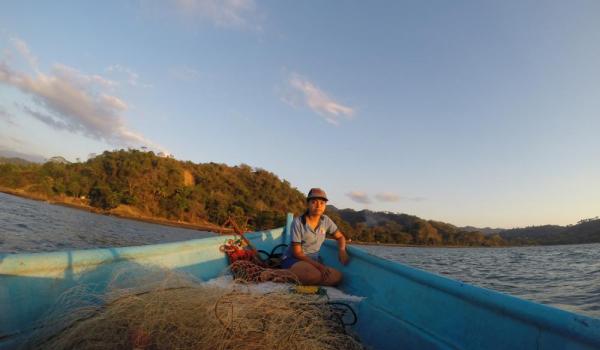Community representatives call on London conference to guarantee equal role in tackling illegal wildlife trade
Representatives from communities affected by the illegal wildlife trade are calling on governments meeting in London this week to recognise local communities as equal partners in conserving wildlife, strengthen their rights to land and increase benefits from wildlife, and give local knowledge equal status in tackling the illegal wildlife trade.

Photo: Vivienne Solis Rivera
The community representatives from Africa, Asia and Latin America met ahead of the conference at a meeting organised by IIED, International Union for Conservation of Nature Sustainable Use and Livelihoods Specialist Group (IUCN SULi), Fauna & Flora International (FFI) and the Zoological Society of London (ZSL).
Dickson Ole Kaelo, CEO of Kenya Wildlife Conservancies Association and spokesperson for community representatives at the London conference, said: “You cannot save wildlife without the support of the indigenous peoples and the local communities who steward most of the world’s wildlife.
"A quarter of the world’s land area is owned or managed by communities – more than double the area of national parks. We are the people who are the most affected by the illegal wildlife trade and can be the most powerful force to address this problem. But this will only happen if communities are empowered and can benefit from wildlife.
“Far too little attention and funding are being directed to implementing the commitments governments have made to communities to involve them as partners in conservation. This is undermining global efforts to combat poaching.
“Critical commitments from governments are also missing. For the London Conference on Illegal Wildlife Trade to be successful, it is vital that governments:
Recognise and guarantee community rights to land and to manage and benefit from wildlife
Give status to indigenous and local knowledge in equal measure to scientific knowledge for conserving wild species in the face of combating the illegal wildlife trade and broader conservation threats, and
Include and give an equal voice to communities in international meetings like this and recognise us as equal partners in conserving our wildlife on our land.”
Note:
Kenya Wildlife Conservancies Association works with landowners and communities to sustainably conserve and manage wildlife and their habitat outside formal protected areas for the benefit of the people of Kenya
